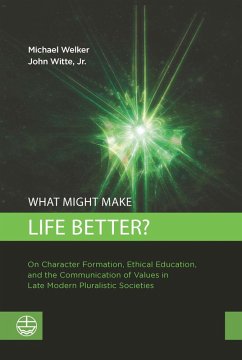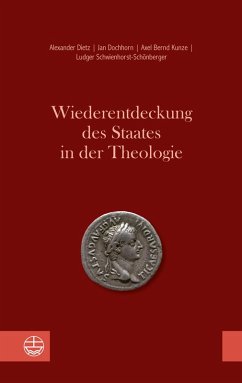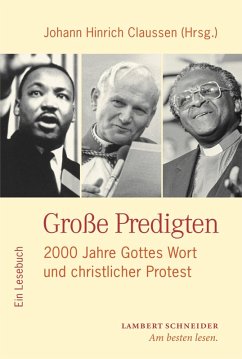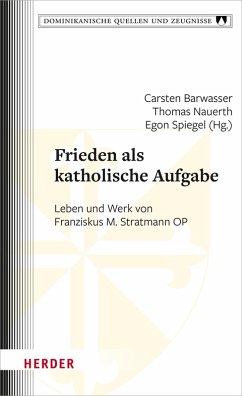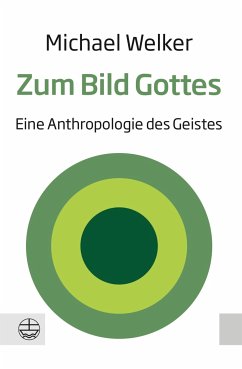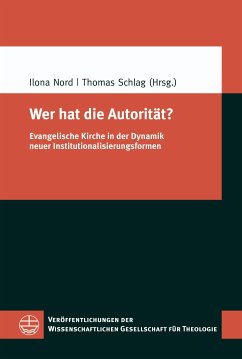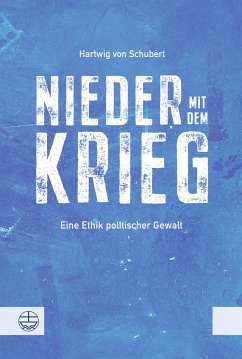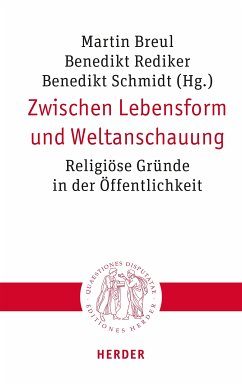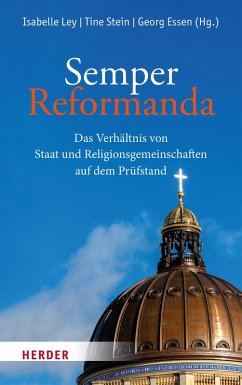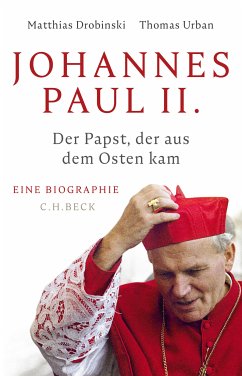
Was fördert ein besseres Leben? (eBook, PDF)
Charakterentwicklung, ethische Bildung und Wertevermittlung in spätmodernen pluralistischen Gesellschaften
Versandkostenfrei!
Sofort per Download lieferbar
Statt: 19,90 €**
18,99 €
inkl. MwSt. und vom Verlag festgesetzt.
**Preis der gedruckten Ausgabe (Broschiertes Buch)
Alle Infos zum eBook verschenkenWeitere Ausgaben:

PAYBACK Punkte
0 °P sammeln!
Dieser Band analysiert die mächtigen normativen Grundlagen, die - im Guten wie im Schlechten - den moralischen Charakter und die ethische Bildung in Europa, Amerika, Australien, Südafrika und anderen spätmodernen liberalen Gesellschaften prägen. Auf der Grundlage einer groß angelegten interdisziplinären und internationalen Studie analysiert dieser Band zunächst die sich wandelnden Orte und Rollen dieser normativen Grundlagen sowohl in den traditionellen sozialen Sphären von Familie, Religion, Recht, Politik und Märkten als auch in den neuen sozialen Sphären von Bildung, akademischer ...
Dieser Band analysiert die mächtigen normativen Grundlagen, die - im Guten wie im Schlechten - den moralischen Charakter und die ethische Bildung in Europa, Amerika, Australien, Südafrika und anderen spätmodernen liberalen Gesellschaften prägen. Auf der Grundlage einer groß angelegten interdisziplinären und internationalen Studie analysiert dieser Band zunächst die sich wandelnden Orte und Rollen dieser normativen Grundlagen sowohl in den traditionellen sozialen Sphären von Familie, Religion, Recht, Politik und Märkten als auch in den neuen sozialen Sphären von Bildung, akademischer Forschung, Gesundheitsversorgung, Medien und Militär. Alle diese sozialen Systeme und ihre komplexe Gewaltenteilung sind für den Aufbau eines guten Lebens und einer guten Gesellschaft heute unverzichtbar. Keines dieser sozialen Systeme sollte die anderen dominieren. Mit ihren jeweiligen Kompetenzen müssen sie zusammenwirken, um das Streben nach Gerechtigkeit, Freiheit, Wahrheit, Menschenfreundlichkeit und Frieden im In- und Ausland zu fördern. [What promotes a better life? Character formation, ethical education and the teaching of values in late modern pluralistic societies] This volume analyzes the powerful normative codes that, for better or worse, shape moral character and ethical education in European countries, in the US, Australia, South Africa, and other late modern liberal societies. Drawing on a major interdisciplinary and international study, this volume analyses the shifting places and roles of these normative codes both in the traditional social spheres of family, religion, law, politics, and markets as well as in the new social spheres of education, academic research, health care, the media, and the military. All of these social systems as well as their complex division of powers, we argue, are essential for building a good life and a good society today, and none should dominate the others. And all of these social systems with their competences must work separately and together to foster justice, freedom, benevolence, and peace at home and abroad. [Für die gesamte Reihe] Diese Reihe von zehn Buchveröffentlichungen untersucht die normativen Grundlagen, die die Charakterentwicklung, die ethische Bildung und die Kommunikation von Werten in spätmodernen pluralistischen Gesellschaften prägen. Mit 150 neuen Studien führender Wissenschaftler:innen aller Kontinente dokumentiert die Reihe, wie traditionelle und moderne ethische Werte in den gesellschaftlichen Bereichen Recht, Religion, Familie, Märkte, Politik, Bildung, Forschung, Gesundheitswesen, Medien und Militär wirken. Obwohl diese Studien den Schwerpunkt auf christliche und westlich-liberale Kontexte legen, bieten sie dauerhafte Impulse für alle Kulturen und Religionen, die die nach Gerechtigkeit, Freiheit, Wahrheit, Menschenfreundlichkeit und Frieden streben. [For the whole series] This series studies the normative codes that shape moral character in late modern liberal societies. Featuring new research by 150 leading scholars from all continents, the series documents how traditional and modern moral values operate in and on the social spheres of law, religion, family, markets, politics, education, research, health care, the media, and the military. While these studies emphasize Christian and Western liberal views, they offer valuable lessons for all cultures and religions in search of justice, truth, freedom, benevolence, and peace. Michael Welker is Senior Professor of Systematic Theology and Executive Director of the Research Center for International and Interdisciplinary Theology (FIIT) at Heidelberg University. A leading scholar of interdisciplinary theology, particularly pneumatology, Christology and anthropology, as well as the dialogue of systematic theology with the natural sciences, the law and economy, he has published 60 volumes and 450 articles and delivered 500 lectures worldwide. John Witte, Jr.
Dieser Download kann aus rechtlichen Gründen nur mit Rechnungsadresse in A, B, BG, CY, CZ, D, DK, EW, E, FIN, F, GR, H, IRL, I, LT, L, LR, M, NL, PL, P, R, S, SLO, SK ausgeliefert werden.




